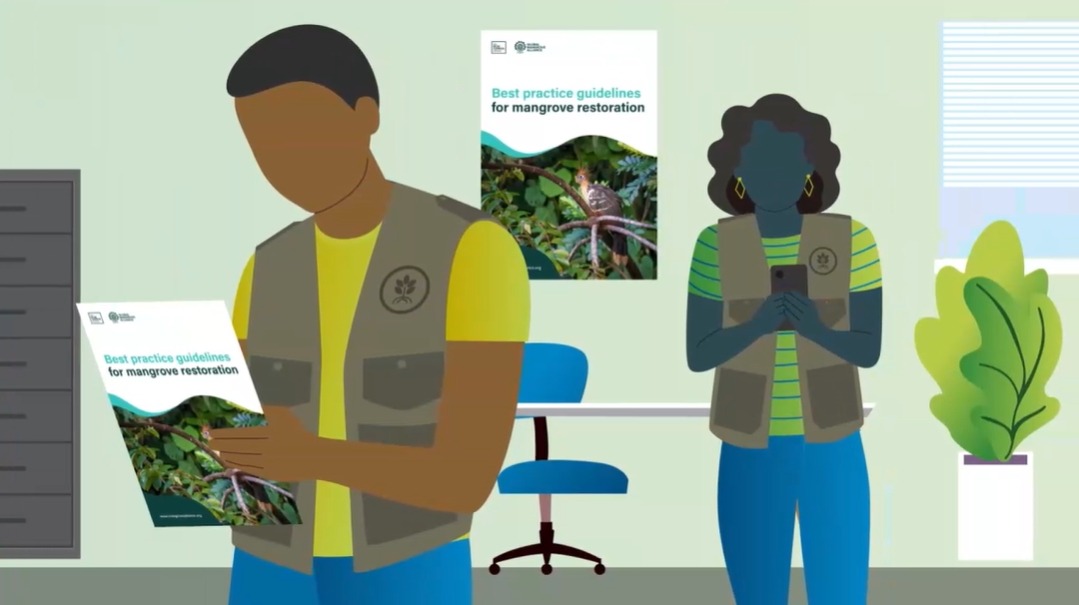Video series "How to effectively restore mangroves"
By Wetlands International
As the spotlight on mangrove restoration grows, it is essential to adopt the most effective restoration approaches. Wetlands International presents a series of animated videos that show why inclusive ecological approaches are the way forward. Learn how to move beyond mass monoculture planting by applying the latest scientific insights and involving local communities and other stakeholders.
Mangroves play a crucial role in improving local fishing, safeguarding biodiversity and building resilient coastal communities, for millions of people. They are also key in capturing and storing carbon. This video series explains how to restore mangroves so that they are self-sustaining, productive, and diverse, for people and nature.
Did you know that nearly 80% of mass-planting efforts fail, especially in areas that have been extensively altered? Wetlands International therefore adopted a more effective approach called Community-Based Ecological Mangrove Restoration (CBEMR) in its projects and has been building the capacity of around 700 stakeholders worldwide to use and upscale the approach through regular CBEMR trainings.
While natural regeneration takes longer than planting, trees that naturally appear will be able to survive in the suitable conditions that were created and deliver more benefits for biodiversity, climate and people.
The goal is the long-term protection of restored mangroves. But securing sustainability is often a challenge beyond the project lifetime. Ensuring active community and stakeholder engagement throughout and beyond the restoration project is crucial. That is why Ecological Mangrove Restoration is an inclusive approach. It is also good practice to always plan and budget for long-term monitoring.
Explore our series in other languages (Spanish, French, Portuguese and Indonesian) and stay tuned with our entire playlist here.
For the most up-to-date and step-by-step guidance on best practices for every phase of mangrove restoration projects, check out the Best Practice Guidelines on Mangrove Restoration, released by the Global Mangrove Alliance and the Blue Carbon Initiative last October.

The video series was developed by Wetlands International with support from Mangrove Action Project (MAP), the Global Mangrove Alliance and Conservation International